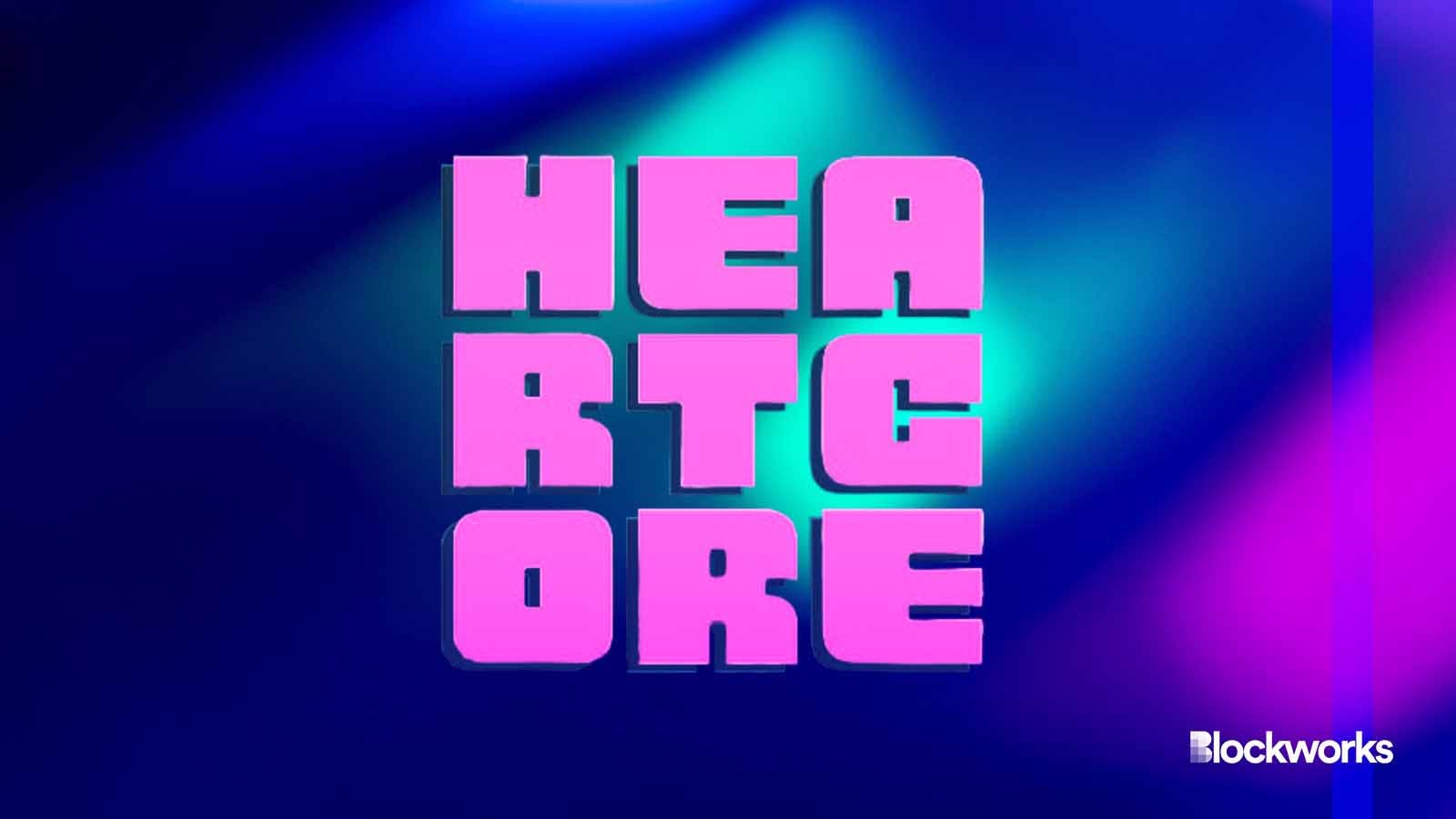VC firm Heartcore expands focus to Web3 via app-focused fund
On-chain protocols represent “the next stage of the software revolution,” partner at the Denmark-based company says

Heartcore and Golubovy/Shutterstock modified by Blockworks
Venture capital firm Heartcore Capital is investing in the crypto segment’s application layer protocols as part of a bet on technologies that foster user interaction with the space.
The Denmark-based company has raised 15 million euros ($16.3 million) for its first Web3 fund set to allocate to founders building upon crypto infrastructure Heartcore says is primed for wider adoption.
“We believe that the shift towards on-chain protocols is the next stage of the software revolution of the past three decades,” Heartcore partner Yacone Ghalim told Blockworks. “We foresee that protocols will progressively disrupt parts of our economy, like previous internet startups.”
While bitcoin has rallied for chunks of the year — jumping to $42,000 Monday morning — much of 2023 resembled a bear market following the collapse of crypto exchange FTX.
Ghalim said such market cycles have historically offered ideal entry points, noting that Coinbase, Ethereum, Maker and Uniswap were built in bear markets.
“Tourist investors and founders have left to seek greener pastures, the signal-noise ratio has dramatically improved, valuations are back to being reasonable, and expectations are in check,” he said of the market conditions.
Read more: Crypto VC challenges persist, but Q3 brings hope with $1B raised
Ghalim argued that it is increasingly possible to create Web3 user experiences on par with Web2 products. For example, he noted the ability for layer-1s and layer-2s to process thousands of transactions per second.
The infrastructure layer currently holds 98% of the industry’s $1.6 trillion market cap, according to Heartcore. Uniswap has historically been the only application layer protocol in the top 20. The market cap of Uniswap (UNI) had fallen to 21st-highest on Monday — behind bitcoin cash (BCH) at $4.5 billion.
Tech infrastructure players — including telecommunications, semiconductor and networking companies — were among the highest valued in the early 1990s. But Web2 applications layer firms such as Apple, Amazon, Microsoft, Alphabet, Meta and Netflix would ultimately build powerful businesses as value moved “up the stack,” Ghalim said.
The firm believes application layer protocols, from DeFi to gaming, are positioned to be winners in their respective categories.
“While history doesn’t always repeat, it often rhymes and we think the same is about to happen in crypto as the ‘fat protocol’ theory is outdated,” he added. “Web3 applications have demonstrated they have real moats, often stronger monetization models and will increasingly own part of their infrastructure.”
Founded in 2007, Heartcore has invested in more than 100 Web2 companies.
The firm has ventured into the Web3 space in recent years, backing teams at companies such as Panoptic, Elusiv, Li.Fi, Superform, Rhinestone, and MakerDAO.
Heartcore has also shown foresight in the cryptocurrency domain with private investments in Ethereum as early as 2014, and in projects like Polkadot and Cosmos in 2017.
Despite its shift towards Web3, the firm maintains its commitment to Web2 technologies, and intends to continue investing in this area through its other vehicles.
“We don’t think that this is a case of overnight disruption and we believe that traditional companies and protocols will co-exist for decades to come,” Ghalim said.
Get the news in your inbox. Explore Blockworks newsletters:
- The Breakdown: Decoding crypto and the markets. Daily.
- 0xResearch: Alpha in your inbox. Think like an analyst.






